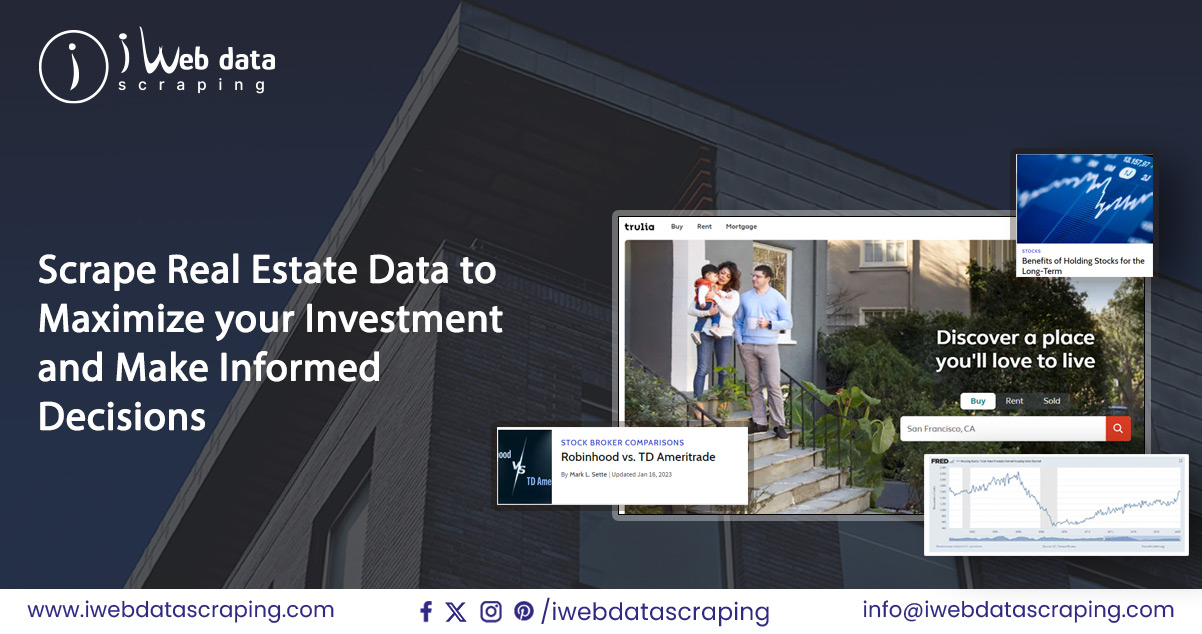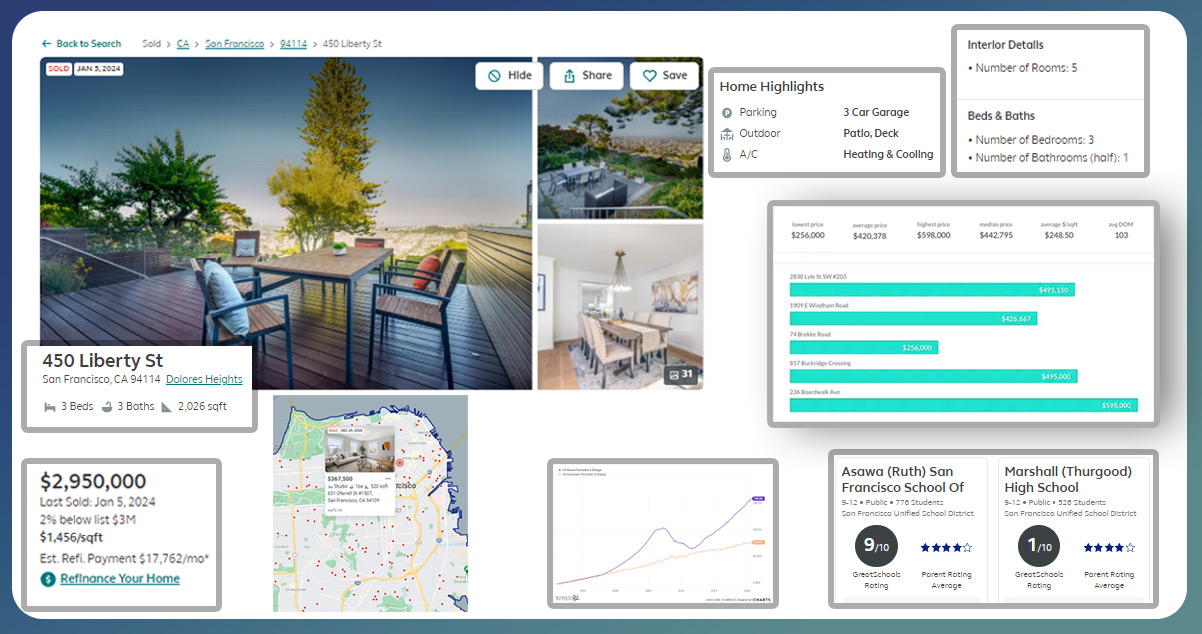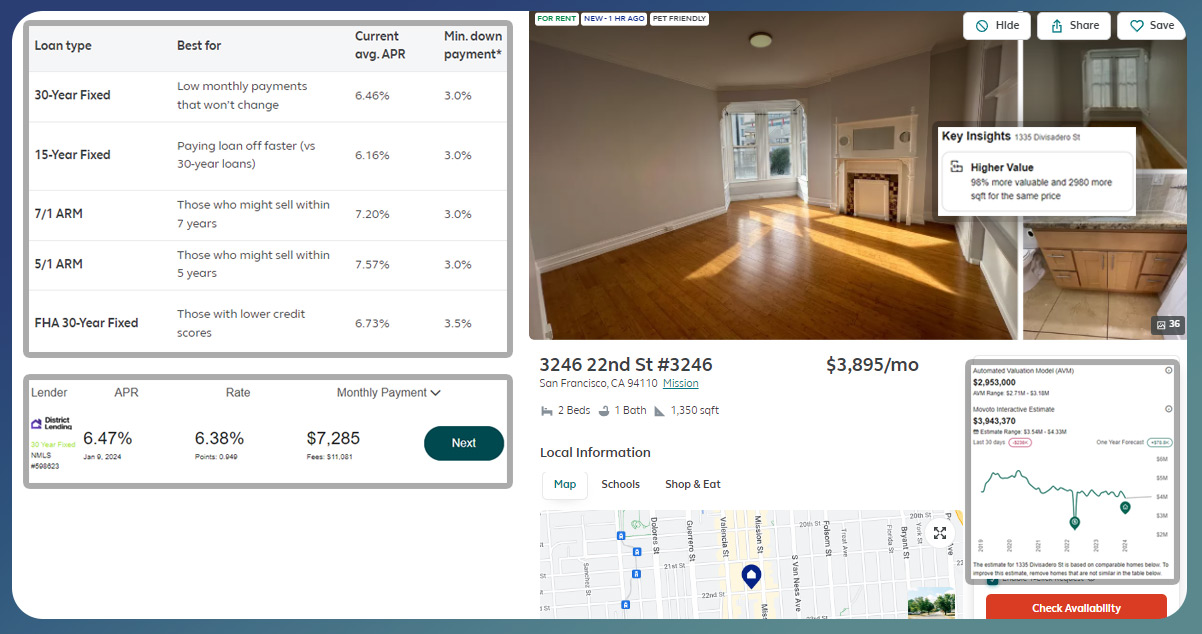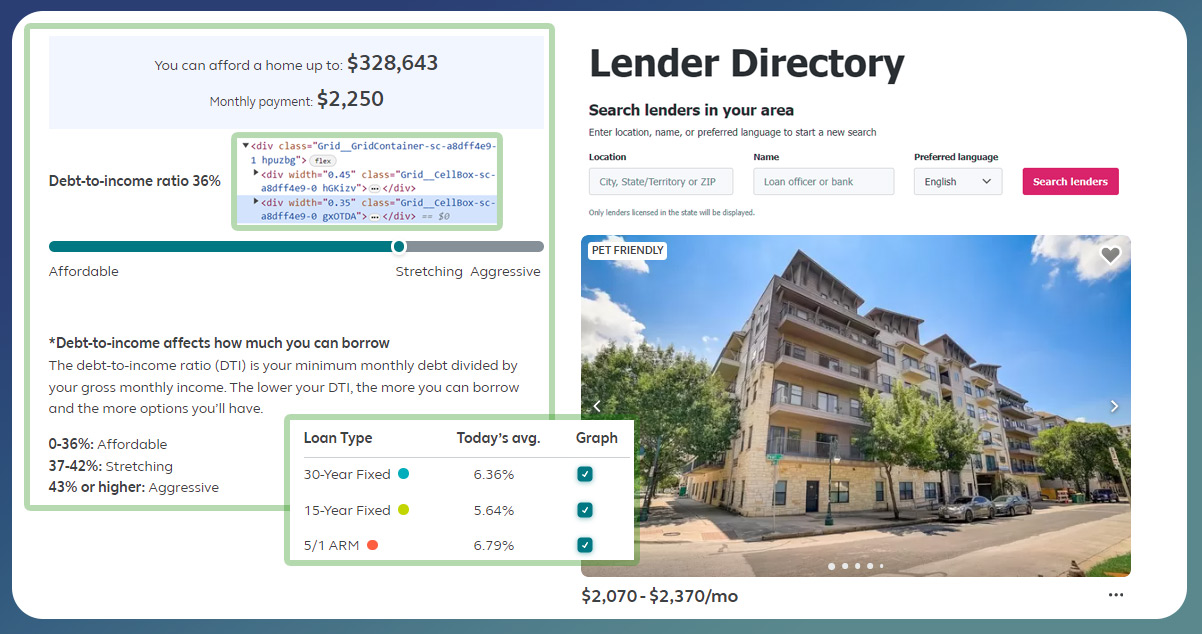

Real estate data scraping involves the automated extraction of information from various online sources, such as property listings, websites, and databases. This process collects valuable data using web scraping tools and techniques, including property details, prices, and market trends. Real estate professionals use this information for market analysis, investment decision-making, and staying informed about property developments. However, compliance with ethical and legal standards while scraping real estate data is essential to ensure privacy and avoid potential legal issues.
Scraping real estate data entails automated extraction of property-related information from diverse online sources, including real estate websites, listings, and databases. This process utilizes web scraping tools to gather pertinent details such as property specifications, prices, and market trends. Real estate professionals employ this data to conduct comprehensive market analyses, make informed investment decisions, and stay abreast of evolving property landscapes. The scraped information aids in identifying emerging market trends, assessing property values, and gauging the competitiveness of specific locales. However, practitioners must approach data scraping ethically and legally, respect privacy standards, and adhere to terms of service on targeted websites. Striking a balance between innovation and compliance is crucial to harness the benefits of real estate data scraping responsibly, ensuring its integration as a valuable resource in the dynamic realm of property management and investment.


Scraping data from real estate websites holds significant importance for various stakeholders in the real estate industry and beyond. Here are some key reasons why scraping real estate data is valuable:
Scrape data from real estate websites to enable professionals to analyze current market trends, property values, and demand, aiding in strategic decision-making.
It provides insights into competitors' property listings, pricing strategies, and market positioning.
Real estate data scraping services empower investors with comprehensive insights into property prices, historical trends, and potential returns. This information is instrumental in making informed investment decisions, allowing stakeholders to strategically allocate resources based on a thorough understanding of market dynamics.
Accurate property valuation is familiar by location, amenities, and comparable sales data obtained through property data scraping. It enables a nuanced assessment of a property's worth, aiding in negotiations, financing, and overall investment strategy.
Real estate agents and agencies leverage real estate data scraper to identify potential leads. By analyzing property listings and understanding buyer/seller preferences, professionals can tailor their outreach efforts, enhancing the efficiency and effectiveness of lead generation initiatives.
Analyzing historical data through scraping contributes to predicting future market trends. Recognizing emerging patterns enables proactive decision-making, allowing investors to capitalize on opportunities and navigate potential challenges.
A nuanced understanding of the local real estate landscape, derived from scraped data, facilitates the development of targeted and effective marketing campaigns. This tailored approach improves outreach efforts, resonating better with the target audience and maximizing the impact of marketing endeavors.
Scraped data provides a deeper understanding of customer preferences. This knowledge allows for the customization of services and offerings, fostering stronger client relationships and ensuring that real estate professionals meet their clientele's specific needs and desires.
Data scraping real estate data assists in assessing potential risks associated with specific properties, neighborhoods, or market conditions. This risk analysis is crucial for making informed decisions, mitigating potential challenges, and optimizing risk-adjusted returns on real estate investments.
Automating the collection of relevant data through scraping saves time and resources. Real estate professionals can make decisions swiftly by streamlining the information-gathering process, staying agile in a dynamic market environment, and gaining a competitive edge.

Feel free to get in touch with iWeb Data Scraping for comprehensive information! Whether you seek mobile or web data scraping services, our team can assist you. Contact us today to explore your requirements and discover how our data scraping solutions can provide you with efficiency and reliability tailored to your unique needs.